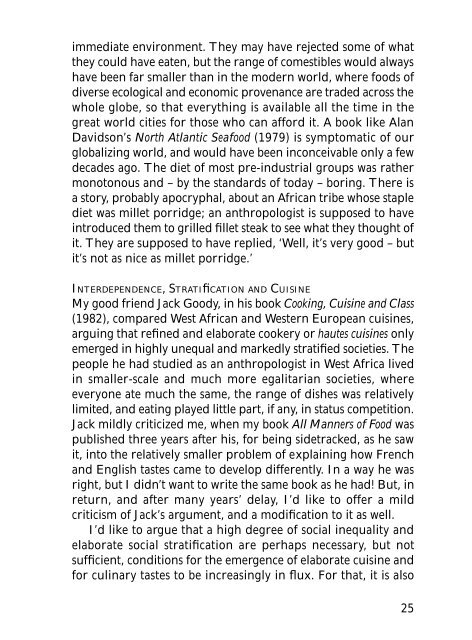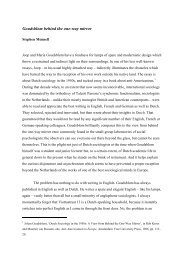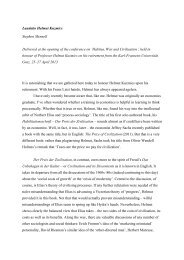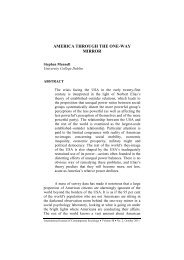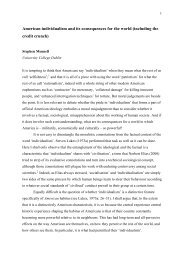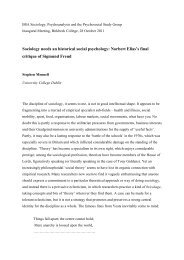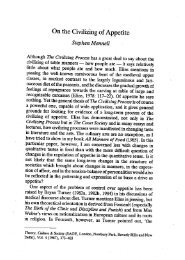Taste, Culture and History - Stephen Mennell
Taste, Culture and History - Stephen Mennell
Taste, Culture and History - Stephen Mennell
- No tags were found...
You also want an ePaper? Increase the reach of your titles
YUMPU automatically turns print PDFs into web optimized ePapers that Google loves.
immediate environment. They may have rejected some of whatthey could have eaten, but the range of comestibles would alwayshave been far smaller than in the modern world, where foods ofdiverse ecological <strong>and</strong> economic provenance are traded across thewhole globe, so that everything is available all the time in thegreat world cities for those who can afford it. A book like AlanDavidson’s North Atlantic Seafood (1979) is symptomatic of ourglobalizing world, <strong>and</strong> would have been inconceivable only a fewdecades ago. The diet of most pre-industrial groups was rathermonotonous <strong>and</strong> – by the st<strong>and</strong>ards of today – boring. There isa story, probably apocryphal, about an African tribe whose staplediet was millet porridge; an anthropologist is supposed to haveintroduced them to grilled fillet steak to see what they thought ofit. They are supposed to have replied, ‘Well, it’s very good – butit’s not as nice as millet porridge.’INTERDEPENDENCE, STRATIfiCATION AND CUISINEMy good friend Jack Goody, in his book Cooking, Cuisine <strong>and</strong> Class(1982), compared West African <strong>and</strong> Western European cuisines,arguing that refined <strong>and</strong> elaborate cookery or hautes cuisines onlyemerged in highly unequal <strong>and</strong> markedly stratified societies. Thepeople he had studied as an anthropologist in West Africa livedin smaller-scale <strong>and</strong> much more egalitarian societies, whereeveryone ate much the same, the range of dishes was relativelylimited, <strong>and</strong> eating played little part, if any, in status competition.Jack mildly criticized me, when my book All Manners of Food waspublished three years after his, for being sidetracked, as he sawit, into the relatively smaller problem of explaining how French<strong>and</strong> English tastes came to develop differently. In a way he wasright, but I didn’t want to write the same book as he had! But, inreturn, <strong>and</strong> after many years’ delay, I’d like to offer a mildcriticism of Jack’s argument, <strong>and</strong> a modification to it as well.I’d like to argue that a high degree of social inequality <strong>and</strong>elaborate social stratification are perhaps necessary, but notsufficient, conditions for the emergence of elaborate cuisine <strong>and</strong>for culinary tastes to be increasingly in flux. For that, it is also25


